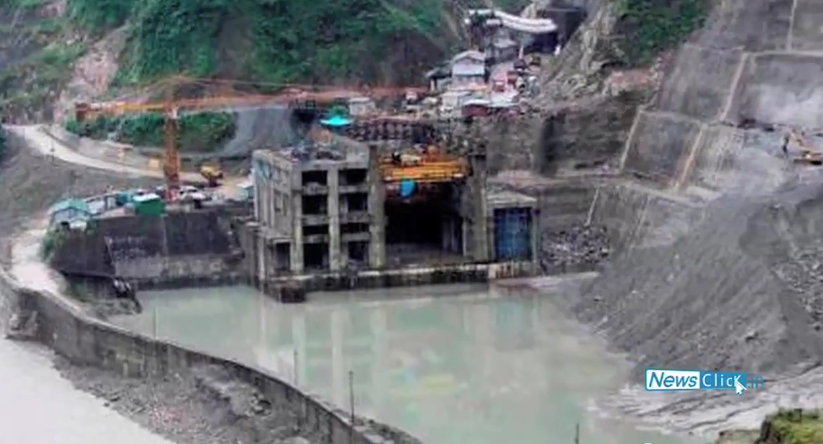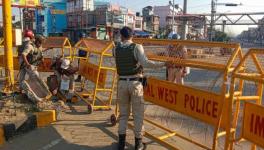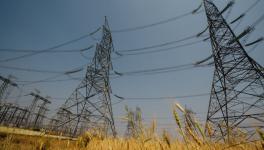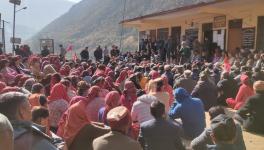Acquisition of Natural Resources in Meghalaya: Development or Destruction?
Angela Rangad talks to Newsclick about the struggle being waged in Meghalaya against the acquisition of natural resources for 'developmental' projects like hydro electric power plants etc. She explains how land is linked to issues of identity and ethnicity in the North-East and argues that mining projects in Jaintia Hills, Khasi Hills and the Lumshnong district have led not only to environmental hazards but also a blatant violation of human rights. She says the Sixth Schedule, which gives constitutional protection to community ownership of land, is now up for amendment which could potentially take away people's right over natural resources. She feels therefore, that there is an urgent need for widening alliances across the country to intensify this resistance.

Transcript:
Newsclick (NC): Could you give us a sense of the land struggles that are unfolding in the North East?
Angela Rangad (AR): As you know India's North East is a resource rich place and the struggles now that are at the forefront is actually preventing land and rivers from being taken away for mega hydro projects but there are also very local specific struggles because people like to talk about the North East as this whole you know, the category of the North East, but even I would say that I'm not competent to actually talk of all the seven states of the North East. They're so diverse and so different and the struggles also are different but when it comes to land in the North East I think we also have to realise that it's intrinsically linked to issues of identity, of ethnicity and so land struggles have often translated into actually ethnic and also inter community conflicts, inter state conflicts within the North East also but for us in Meghalaya, the struggle has been because of the focus on so-called development and the need for focusing on expansion, on extractive industries. We've had several forms of mining, be it coal, limestone etc. There has been one district especially in Meghalaya called Jaintia Hills which actually has been destroyed. The rivers there are dead rivers, the land is all barren now because of coal mining and now when the coal industry has gone down, we also have limestone mining. We have some nine cement plants operating in a five kilometer square radius in the area of Lumshnong and in this area it's not just that there's an onslaught on the natural resource and pollution but also there's a blatant abuse of human rights. For instance the people engaged in these mines, many of them are underpaid, they don't have any labour rights. Just recently, in the past year, there have been so many miners' deaths but nobody actually says anything or speaks up for them because it's almost as if they're invisible with no rights. In addition to the coal and limestone mining in Jaintia Hills, we also have this multinational company that was operating in Nongtrai Village in Khasi Hills extracting limestone in Meghalaya to export it through a seventeen kilometer long conveyor belt to feed its plant in Bangladesh. There was resistance to it because actually we have a very different system of land ownership there. Much of the land is community owned, supposedly, which also has constitutional protection through the Sixth Schedule. We also have a local legislation, the Land Transfer Act, so actually land cannot be transferred to non locals which includes companies, whether it's multinational or not, but this struggle finally landed up in the courts and unfortunately all that the Supreme Court said was that Lafarge, as a company, was cautious, they didn't realise that they were mining on forest land and so the order which came out was that they should ensure that they give something back to the community and that they implement their CSR programs properly. So that has been, at that level, a loss to the resistance but in addition to this now the major struggle which we're involved with, along with student unions in Meghalaya, is trying to stop this so-called focus on just putting all of our resources in to expanding Shillong. There's this whole New Shillong Township project which has meant that the state, on behalf of private persons and real estate developers, are trying to snatch away common property of resources, community land and agricultural land of people, to supposedly expand Shillong. Our argument has been that let Shillong expand naturally and if at all you want to bring so-called development first of all we need to question what is development? Development for whom? Who defines this development? If at all you want to give infrastructure, you give to the district towns and your villages not necessarily surrounding Shillong, concentrate even on other districts. So these are some of the struggles we are engaged in.
NC: In terms of development is there some resistance which is coming up against the proposed Asia Highway project which is supposed to link the various countries in the vicinity of the North East and is there a way that international solidarities can be built on the basis of this resistance?
AR: There has always been a resistance to this whole idea of the Look East policy. You know that much of these ideas of having these road expansions and infrastructure has come with this package of this whole Look East policy of linking the North East of India to South East Asia and that being a gateway etc. and that it will actually bring in development for the region but we know that this is not something which was organic, which was a demand of the people. It was a top down approach where somebody else decided what the policy should be, somebody else decided that there has to be this expansion and this opening up. We don't really know actually eventually what is there for the actual people in the region, whether they will lose and to our mind actually they will lose more than gain from this so called project. So there have been resistances but I think there is a need to actually also expand this solidarity and to also look for new ways of how to resist because many times we try to engage with so called policy, we try to engage with the mechanisms of... For instance, as an example, when you need a project has to be undertaken then you have to supposedly get your EIA clearances, your forest clearances, this and that. Many people say engage by way of ensuring that those mechanisms are adhered to etc. but we know that even after those mechanisms are so called adhered to of, clearances are not given, they're given ex post facto and there's much corruption and illegalities even in that process. So we feel that actually there has to be alliances built of not just trying to resist by way of ensuring that so called mechanisms are adhered to but also to actually have something like a non-cooperation movement. If we think that it is something that the region does not need, will not benefit from, for instance these hydro-electric projects. The region does not need that much generation. It's about actually trading in power and there will be nothing that comes back to the region. So we feel that there should just be a non- cooperation which means that on the ground people have to build solidarities to resist.
NC: Other than student groups who are the other stakeholders in the resistance and are the struggles in the North East, do you get support from other parts of the country as well?
AR: Yeah the student unions in the region have been very active actually in resisting many of these proposals but in addition to that it's actually for instance in Shillong, this whole Shillong Township, it has actually been the people who live there, who farm in those areas, who have actually come together to raise their voices against it but sure, we need to have alliances across the country and many of us are in touch with say the National Alliance of People's Movement etc. We do get inputs from them and ideas of how to go about things but for instance, now a big threat to us, many of our states actually have the constitutional provision of the Sixth Schedule and the Sixth Schedule is up for amendments. We feel that many of these amendments, in one sweep, will take away much of our rights to forests, to land etc. because we will not have the control and power. The people will not have the control and power over the land and resources anymore if those provisions in the Sixth Schedule are taken away. So now to stop an amendment like this to the constitution we don't have a voice, we don't have the political clout. For instance, Meghalaya we have two representatives in the Lok Sabha. So we will need to build alliances across the country and we will need for people to feel as much for preventing a constitutional amendment to the Sixth Schedule, as much as we do. For that we obviously need the assistance and the solidarities of other movements across the country.
Get the latest reports & analysis with people's perspective on Protests, movements & deep analytical videos, discussions of the current affairs in your Telegram app. Subscribe to NewsClick's Telegram channel & get Real-Time updates on stories, as they get published on our website.























